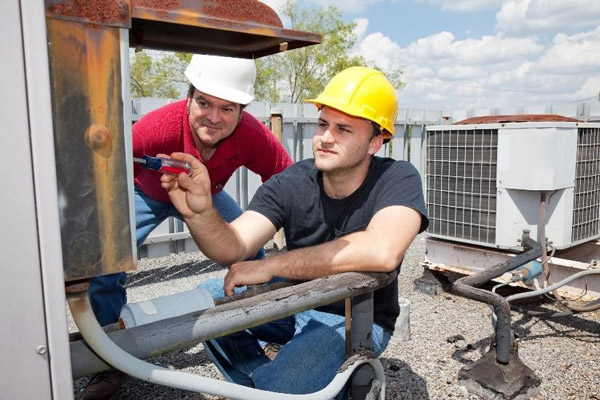Gone are the days of your household air conditioning blasting and the smell of barbeque from every backyard. Autumn is a new season that is marked by new weather, new smells and new household repairs.
November reminds us that it’s time to get our heating and cooling systems repaired and serviced by the only professionals qualified to do so, HVAC technicians. During the inspection, these specialists will prepare your household for the colder months and ultimately save you money in the long run. Their winterization services include checking your furnace, duct cleaning, tuning up your heating system, and maintaining customers’ HVAC systems.
These maintenance mavens are fortunate to have a career that is in demand year-round. According to the U.S. Department of Labor, the job outlook for heating ventilation and air conditioning specialists is expected to grow by 34% until 2020, which is much faster than the average for many other occupations.
So, how do you become an HVAC technician? If you’re detail-oriented, physically strong, and have mechanical skills, then you are already a great candidate for the position. While post-secondary education is not required, a growing number of these professionals receive certification from career colleges, such as Dorsey Schools in Michigan. In the course of this training, students learn the practicalities and technicalities of HVAC systems through lecture-style classes and an externship.
If you’re looking for a new career opportunity, stop by one of Dorsey Schools’ Open Houses to learn more about their HVAC training program. But if you’re simply in need of a highly skilled Heating Ventilation and Air Conditioning professional, look no further than a Dorsey graduate.

